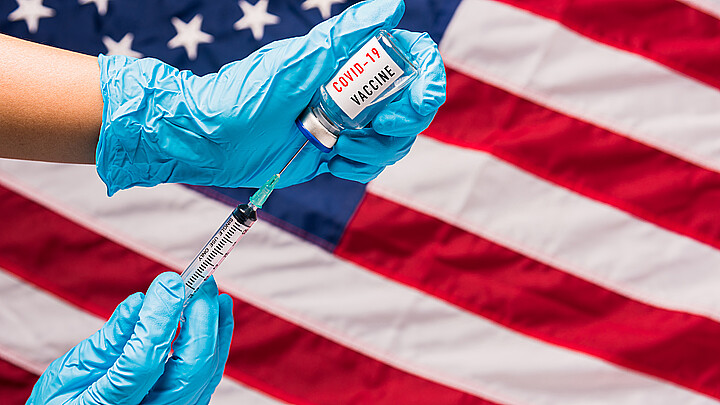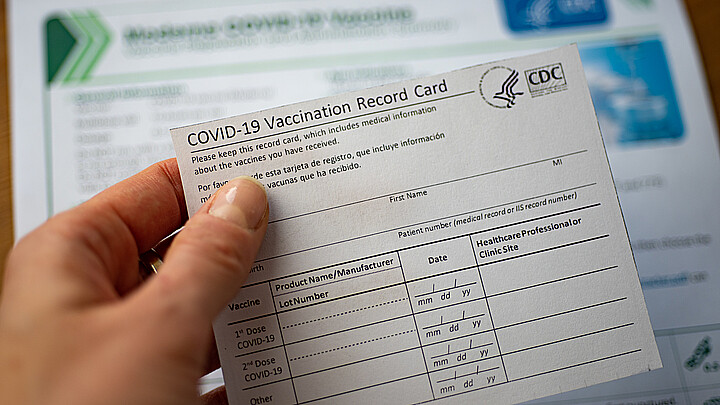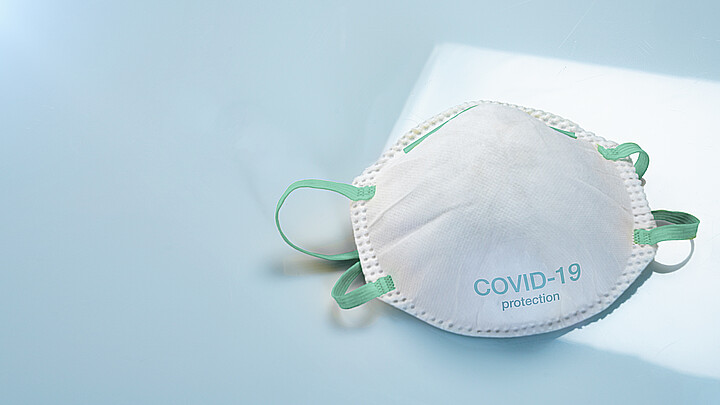Coronavirus
Ivy League researcher hits brick wall with medical journals on COVID vaccine death study
Rejections are largely "not very substantive," though feedback has strengthened his argument that vaccines and deaths are not simply correlated
December 21, 2021 8:43am
Updated: December 21, 2021 8:43am
A Columbia University researcher who estimates COVID-19 vaccine-related deaths are "underreported by a factor of 20" told Just the News that medical journals are rebuffing his research, largely for "not very substantive" reasons.
His study has been "desk rejected by over 10 editors at medical journals," said clinical neurobiologist Spiro Pantazatos. "I've lost count at this point."
Those turning him down include "widely recognized" standalone journals and publishers and "a few more specialist ones," said Pantazatos, who is also a research scientist at the New York State Psychiatric Institute. While some claimed the study was irrelevant to their focus, others said they have too many COVID-related submissions.
The most perplexing rejection, he said, cited placement of "methods" and "results" within the wrong section. It's rare to cite such minor errors during the screening stage, he said.
Using U.S. and European datasets and studying "regional variation in vaccination rates," Pantazatos and Israel-based researcher Hervé Seligmann claim they were able to predict "all-cause mortality and non-COVID deaths in subsequent time periods."
The CDC's estimated vaccine fatality rate (VFR) is 0.002%, but the duo's data suggested a VFR of 0.04% averaged across the U.S. — 146,000-187,000 "vaccine-associated" deaths from February through August.
The discrepancy shows the Vaccine Adverse Event Reporting System (VAERS) suffers from "under-ascertainment bias," they wrote.
Pantazatos told Just the News he was motivated to study the issue "because there is a huge gap in the literature of high quality research on the true risks and incidence rates of severe adverse reactions to the vaccines."
Doctors rarely have time to do more than "read the headlines in the abstract and trust that the science was done rigorously," he said, leaving them dangerously reliant on journal articles that may not pass muster. He wants to "help facilitate a paradigm shift on mass vaccination strategies that could potentially save many lives."
The COVID-19 vaccines "are monitored by VAERS and several other vaccine safety monitoring systems as part of the most intensive vaccine safety monitoring effort in U.S. history," the CDC claims on its website. "This continuous, robust safety monitoring helps keep COVID-19 vaccines safe and helps ensure the benefits of vaccination continue to outweigh any risks."
Arguing the vaccines are "effective at preventing severe illness from COVID-19 and limiting the spread of the virus that causes it," the CDC recommends that all those eligible get a vaccine as soon as possible.
Hope for 'respectful disagreement'
Pantazatos said he's not concerned about being canceled for his research, even though he's familiar with Harvard Medical School's Martin Kulldorff, a repeat target of Big Tech censorship for questioning the science behind common COVID policies and highlighting their harms.
Kulldorff, Stanford Med's Jay Bhattacharya and Oxford's Sunetra Gupta formalized these criticisms in the Great Barrington Declaration.
According to recently released emails, National Institutes of Health Director Francis Collins called the trio "fringe epidemiologists" and colluded with National Institute of Allergy and Infectious Diseases Director Anthony Fauci to issue a "quick and devastating public take down" of their work.
The officials commended an article by Yale epidemiologist Gregg Gonsalves in The Nation, a left-wing magazine, which criticized the even further left Jacobin magazinefor giving Kulldorff a platform to argue that lockdowns hurt poor people.
Pantazatos told Just the News he's optimistic that "reason, evidence and respectful disagreement will prevail" and that colleagues will appreciate a new perspective on vaccine side effects.
While he is "being censored in a way by the medical journals" rejecting his study, the scientist acknowledged, the feedback has only strengthened the manuscript, which Pantazatos uploaded in October and has updated "semi-regularly." For example, journal editors challenged him to explain why the results show a causal rather than correlational relationship between vaccination and mortality risk.
Following debate with a colleague on whether vaccination was just a response to rising cases and deaths in a given region, Pantazatos added more details and a results table showing that vaccination also predicted non-COVID deaths "in an age-related pattern that was similar to the main result."
Most recently, a doctor gave him tips for getting published in a "reputable" journal: focusing on and clarifying "a few main aims," and reconsidering sentences "that could be construed as too negative for pharma industries given many journals rely on them for revenue."










